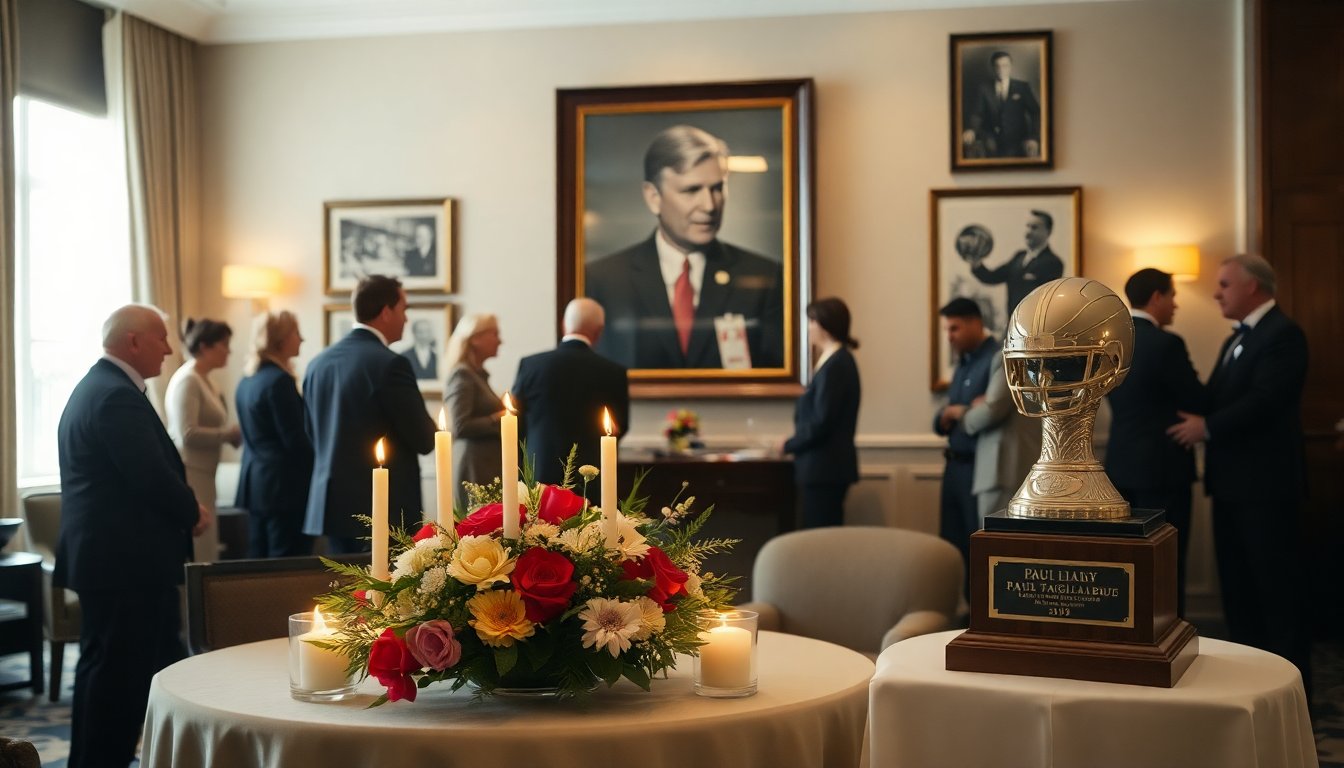Table of Contents
In a significant moment for the sports world, Paul Tagliabue, the former commissioner of the NFL, has died at the age of 84. His family confirmed that his passing resulted from heart failure, following a prolonged battle with Parkinson’s disease.
Tagliabue, who led the league from 1989 to 2006, was instrumental in shaping modern American football. His tenure was marked by an unwavering commitment to the NFL, guiding it through challenges while enhancing its reach and popularity. He balanced innovation with tradition, making substantial advancements in the NFL’s business structure and global engagement.
Legacy of leadership and innovation
Tagliabue began his journey with the NFL as its seventh commissioner, succeeding the iconic Pete Rozelle. His vision resulted in significant changes, including the expansion of the NFL from 28 to 32 teams and the introduction of a salary cap, which promoted competitive balance among franchises.
Strengthening the league’s foundation
His leadership fostered a climate of labor peace that had previously eluded the league. Tagliabue played a vital role in negotiating collective bargaining agreements that improved relations between players and management. Under his stewardship, the NFL not only navigated economic challenges but also emerged as a dominant force in American sports.
Moreover, he was pivotal in modernizing the NFL’s business model. He launched the league’s official website and established its television network, embracing emerging technologies such as cable and satellite broadcasting. Tagliabue’s forward-thinking vision laid the groundwork for the NFL’s expansion into international markets, including the creation of NFL Europe.
Guiding the NFL through adversity
Throughout his time as commissioner, Tagliabue confronted numerous challenges, such as the aftermath of the September 11 attacks and the devastation caused by Hurricane Katrina. His decision to postpone games following the attacks highlighted his commitment to the safety and well-being of fans and players. By prioritizing healing and community over competition, Tagliabue demonstrated that the NFL was more than just a game.
Commitment to community and inclusion
Tagliabue’s influence extended beyond his achievements in the league; he was a strong advocate for diversity and inclusion. He took a courageous stand against racism by relocating Super Bowl XXVII from Arizona when the state initially refused to acknowledge Martin Luther King Jr. Day as a holiday. This decisive action underscored his belief in social responsibility and inclusivity within the sport.
His leadership style was characterized by humility and a dedication to the greater good. Tagliabue often remarked that the NFL served to unite people from various backgrounds, emphasizing that the league’s success hinged on its ability to adapt to societal changes while upholding its core values.
A lasting impact on the NFL
In recognition of his contributions, Tagliabue was inducted into the Pro Football Hall of Fame in, joining an elite group of individuals who have significantly impacted football history. His dedication to the game and its players will be remembered for years to come.
Paul Tagliabue’s passing leaves a substantial void in the NFL community, but his legacy will continue to inspire future generations of leaders in sports. As Roger Goodell, the current NFL commissioner, remarked in his tribute, Tagliabue’s principled leadership and vision set the stage for remarkable success. The NFL’s growth and popularity can be traced back to the foundations he established, ensuring that the sport remains a cherished part of American culture.


